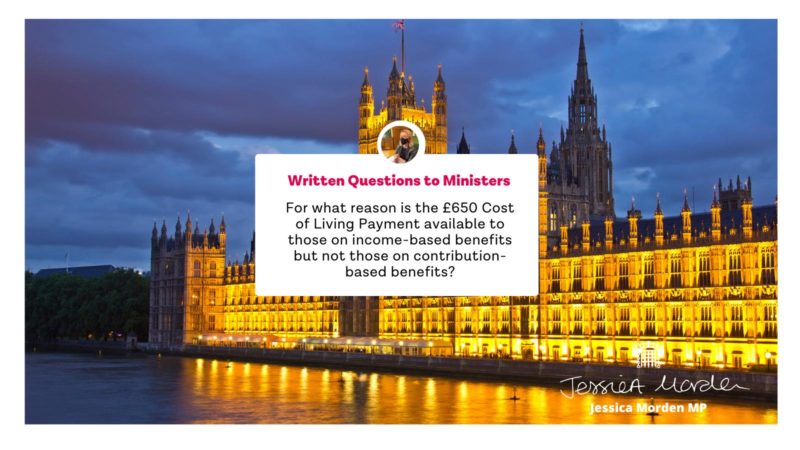Jessica Morden Jessica Morden - Labour MP for Newport East, PPS to Keir Starmer and Shadow Minister for Wales

After hearing from constituents in Newport East, I wrote the the Secretary of State for Work and Pensions to ask:
For what reason the £650 Cost of Living Payment is available to those on income-based benefits but not those on contribution-based benefits?
The reply I received is below and, as is commonplace, seems not very helpful. Highlighting duty freezes on alcohol duty and fuel and lauding them as actual help in the face of the cost of living crisis brings comfort to nobody.
Here’s the full answer:
Non-means tested benefits are not qualifying benefits for the Cost-of-Living Payment in their own right because people receiving these benefits may have other financial resources available to them. The Government is committed to managing the public finances in a responsible way by targeting the £650 Cost of Living Payment support at low income means tested households where it is most needed.
The guidance with the full list of support can be found at: Cost of living support – GOV.UK (www.gov.uk)
In addition to the new support, people on low incomes but not means-tested benefits may also benefit from previously announced measures to help people tackle the cost of living, including frozen alcohol duty and fuel duty, raising the NICs threshold, council tax rebates and the further rise in the National Living Wage to £9.50 an hour from April 2022.
From 1 October, a new ‘Energy Price Guarantee’ will mean a typical UK household will now pay up to an average £2,500 a year on their energy bill for the next two years. This is automatic and applies to all households. This will save the average household at least £1,000 a year based on current energy prices from October and is in addition to the £400 energy bills discount for all households. This applies to all households in Great Britain, with the same level of support made available to households in Northern Ireland.
From October 2022, Government is also providing an additional £500 million to help households with the cost of essentials, bringing the total funding for this support to £1.5 billion.
